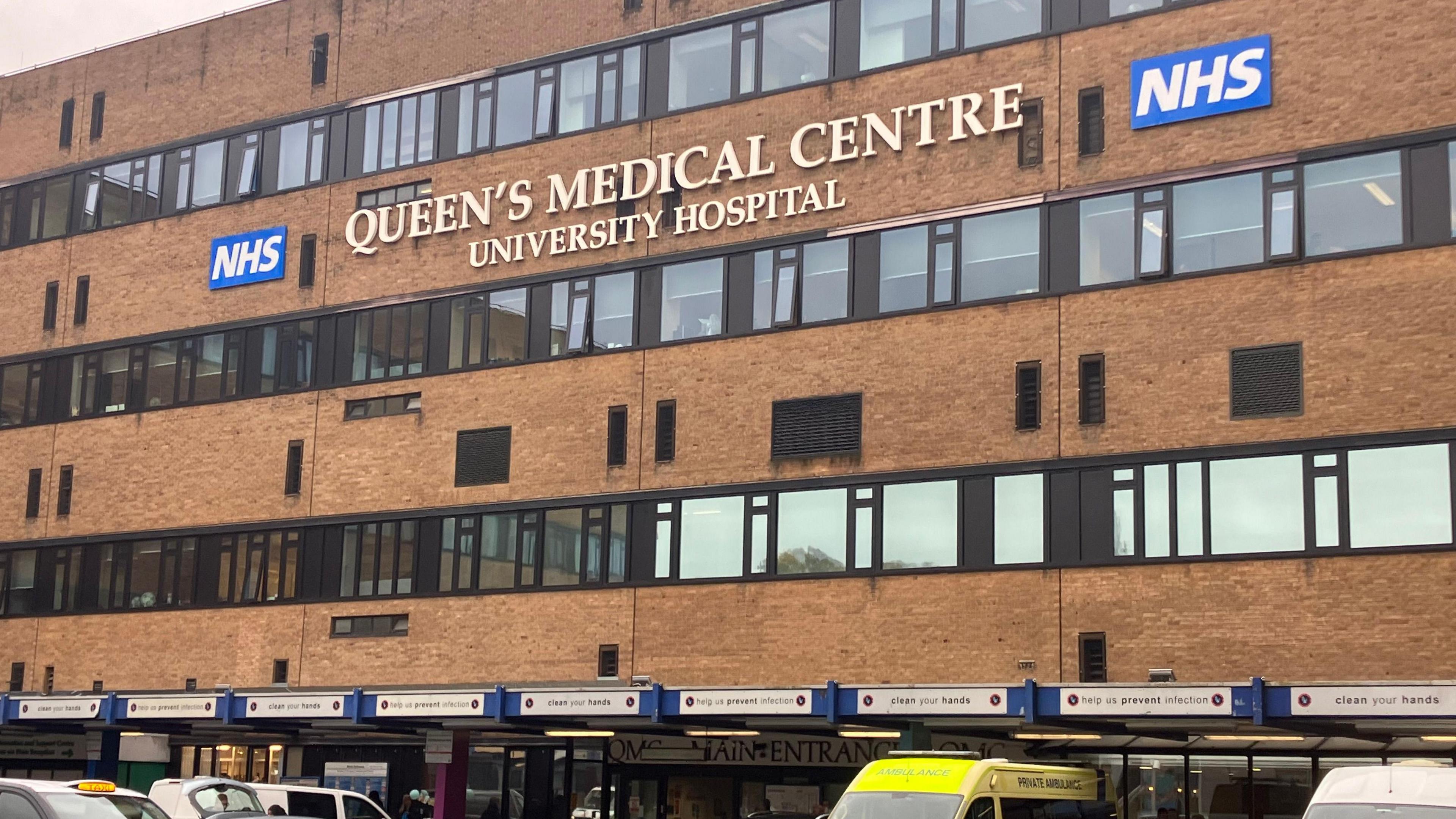Hundreds tested for HIV and hepatitis in new scheme

The scheme has now been rolled out to Nottingham's Queen's Medical Centre
- Published
Hundreds of people who have attended A&E in Nottingham have been tested for HIV, and hepatitis B and hepatitis C, as part of a new scheme.
The Nottingham University Hospitals (NUH) NHS Trust introduced the Opt-Out routine testing in its emergency department at the Queen's Medical Centre on 30 July.
It means anyone aged 16 or over who is having their blood taken - for any reason - will be tested for the blood-borne viruses, unless they choose to opt out.
A number of positive results have already been returned from more than 1,300 tests, according to project coordinator Molly Hansell.
She said: "We're now just over a week into the project, and we've done just over 1,300 tests.
"I'm already getting positive results through to me and making contact with those patients."
Blood-borne viruses like HIV and hepatitis B and C can be symptomless, meaning people can live with them for years and not know, which Ms Hansell said was one of the "important" reasons for people to get tested.
'Reducing the stigma'
The project coordinator added that the programme was rolled out by NHS England two years ago in 33 other A&E departments across London, Manchester, Blackpool and Brighton.
"In doing the tests, they found over 4,000 cases of undiagnosed blood-borne viruses, so they've expanded this out across the rest of England, and we're the first hospital to go live with it," Ms Hansell said.
It is hoped the hospital will test more than 95% of patients who attend QMC's emergency department.
Ms Hansell added: "We take hundreds of blood tests every day, so we're really trying to improve access to testing, and in doing so, reduce the stigma that's associated with these viruses and ultimately save people's lives."
Patients who test positive for any of the blood-borne viruses will be offered specialist support and have a treatment plan put in place, NUH said.
Follow BBC Nottingham on Facebook, external, on X, external, or on Instagram, external. Send your story ideas to eastmidsnews@bbc.co.uk, external or via WhatsApp, external on 0808 100 2210.